Automate playbook launch via a business process flow

In today’s world, the job of salespeople is challenging. They are under more pressure than ever to deliver value to sophisticated customers who have a plethora of information at their disposal. On the flip slide, although customers today may be better informed, with the wealth of information and options available, they are increasingly overwhelmed. They seek relevant, personalized, and engaging experiences, where they can be skillfully guided through the purchasing process. This is driving a major shift in how businesses operate today.
Playbooks in Dynamics 365 for Sales can automate sales best practices and repeatable tasks, or respond to sales or external events. Combined with business process flows, playbooks can be used to efficiently implement an organization’s guided selling strategy. Let’s look at how to launch a playbook automatically from a stage in a business process flow.
Consider a lead qualification scenario as an example. Lead qualification is an important process in the sales cycle, where the seller needs to judiciously evaluate various aspects, such as the buyer’s need and budget, product/service relevance, and competition, before qualifying the opportunity. We would like a playbook to be launched automatically every time a new lead is created, to guide the seller through the lead qualification process.
Create a playbook template
To get started, first create and publish a playbook template containing a checklist of tasks for the seller when a new lead is created.
To learn how to create playbook templates, and to understand how playbooks can be useful, see the blogpost Use playbooks for guided selling in Dynamics 365 for Sales.
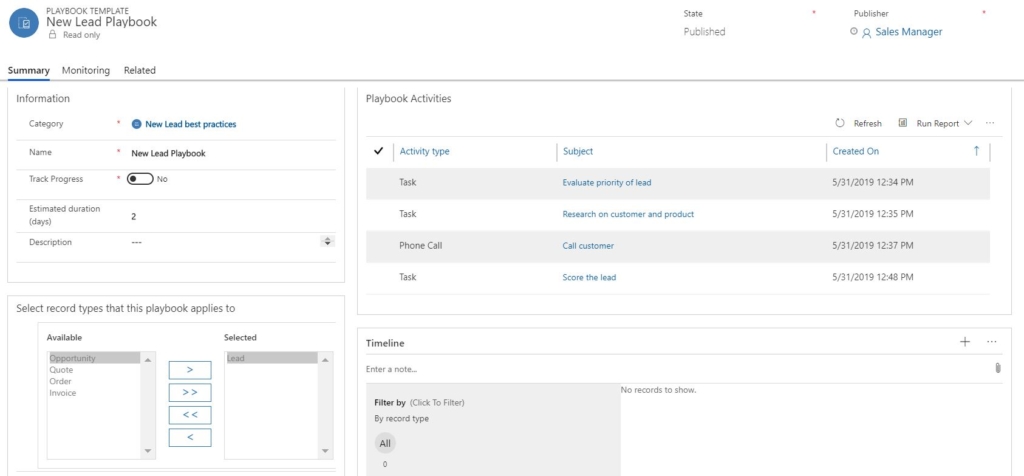
Once the playbook template is in place, we can trigger an automatic launch of this playbook from the “Stage Entry” or “Stage Exit” event of the business process flow.
Automate the process of creating a playbook record
A workflow or an action can be used to automate the process of creating a playbook record. In this illustration, a workflow has been created that can be run as an on-demand process when the business-process-flow stage changes.
In the Create Process dialog box, specify Process name, select Workflow as the category, and select Lead as the entity, before proceeding to define properties.
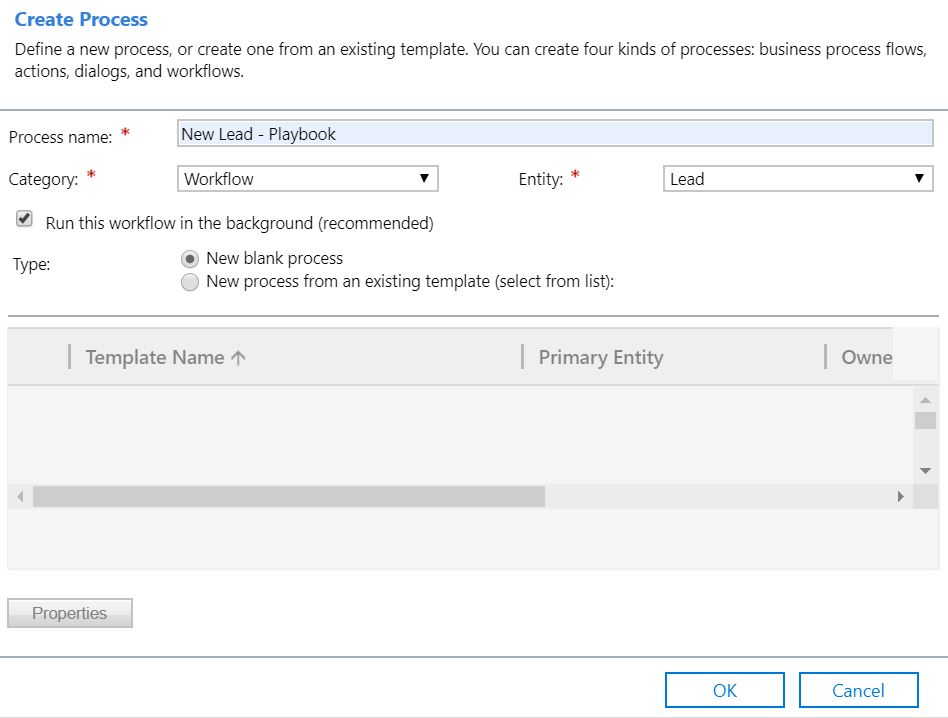
Under Available to Run, select As an on-demand process, and for Scope, select Organization. We want a playbook record to be created when this workflow runs. To do so, select Add Step, select Create Record, and then select Playbook.
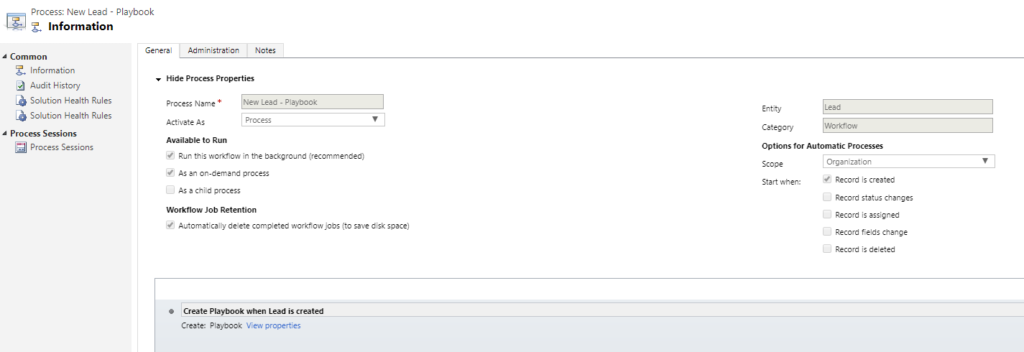
Now let’s set the properties. Select View properties. The Set Regarding property is configured as the current lead, and the playbook template is selected. Note that this playbook template was created with Track Progress set to No. As a result, once the playbook is launched, the activities created are linked directly with the lead record. If Track Progress is set to Yes, the activities created roll up to the playbook record, which, in turn, roll up to the lead.
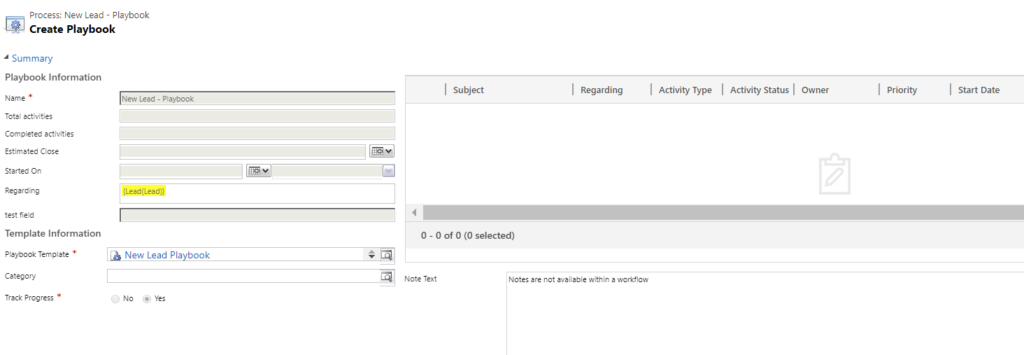
Once the workflow is activated, it can be added to a business process flow to execute and launch the playbook when the stage of the business process flow changes.
Trigger launch of a playbook via a business process flow
A business process flow can be edited to add a workflow. The following screen shows changes made to the out-of-the-box business process flow Lead to Opportunity Sales Process to add the workflow in the Qualify stage, which is the first stage of the business process flow. Enter a Display Name, select a Workflow, and set the Trigger to Stage Entry before saving and validating the business process flow.
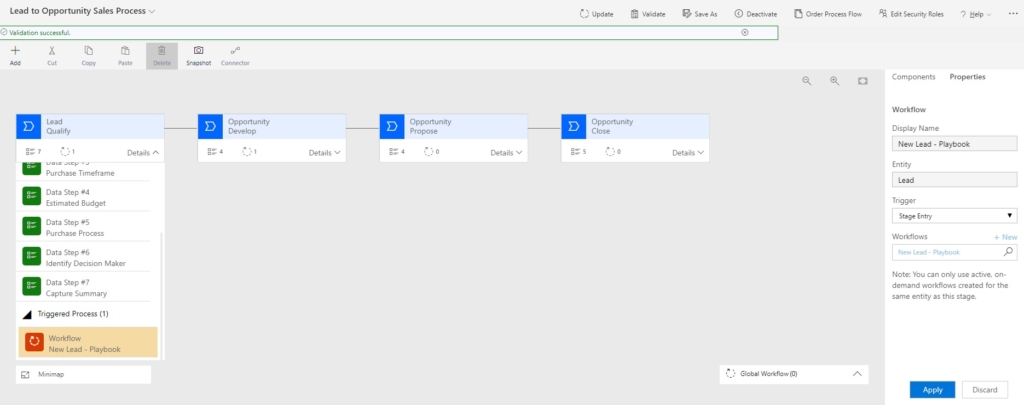
When a lead is created and enters the first stage of the Lead to Opportunity business process flow, a playbook is automatically launched, and activities are created for the seller to work on before progressing to the next stage. Appropriate playbooks can be launched from various stages in the business process flow, providing a guided experience for the seller.
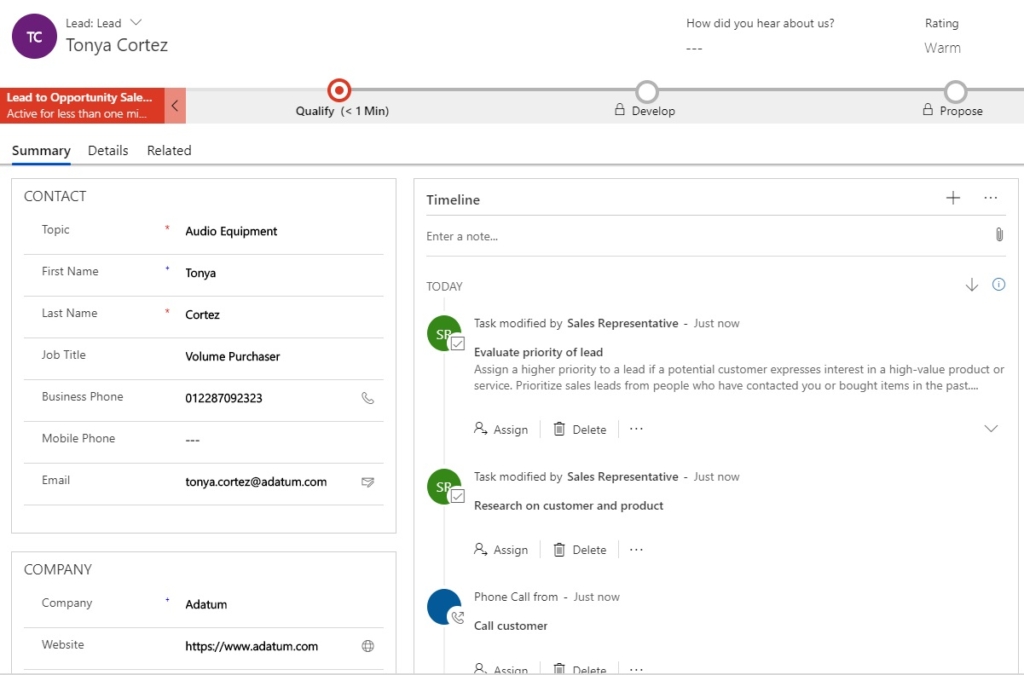
Conclusion
While a business process flow sequentially structures the set of checklists or things that need to be done at various stages, playbooks can be used to summarize the detailed set of activities that need to be accomplished at a particular stage in the business process flow, providing guidance to the seller working on a deal.


